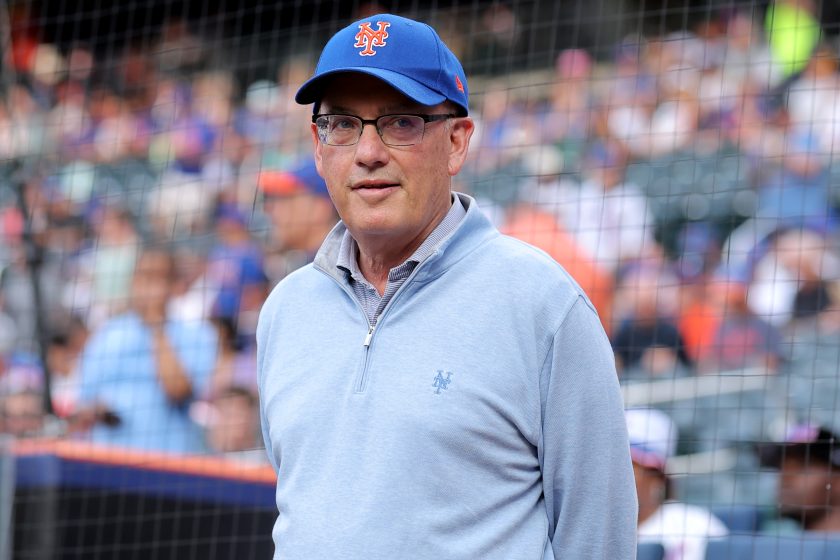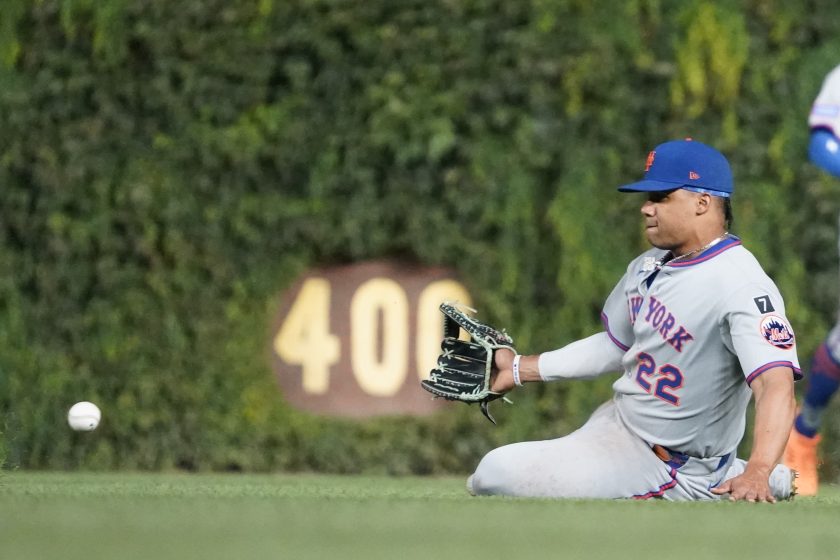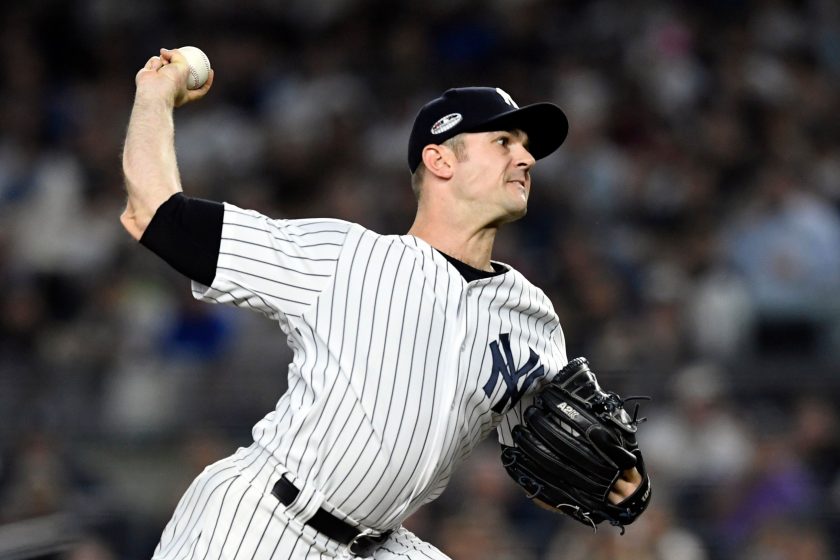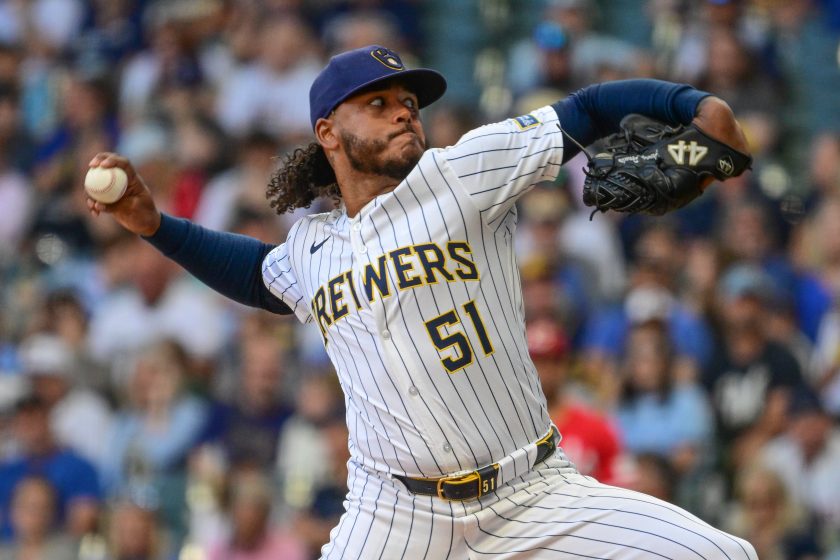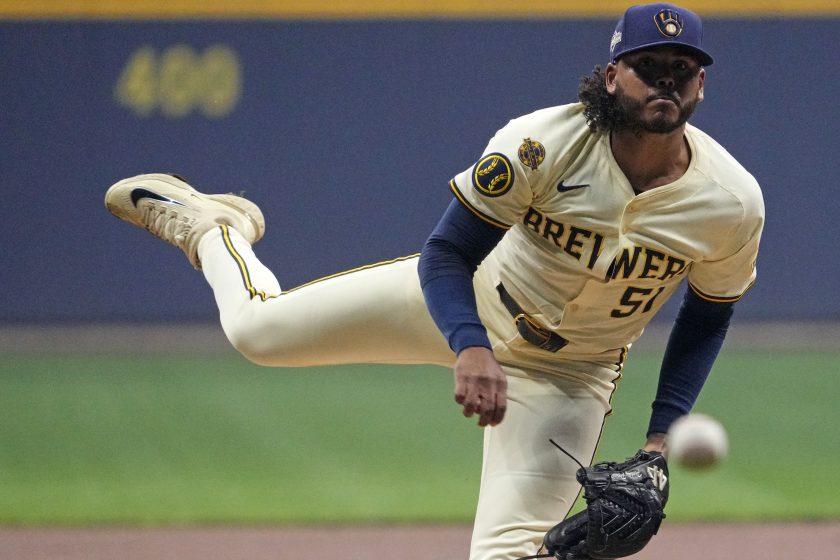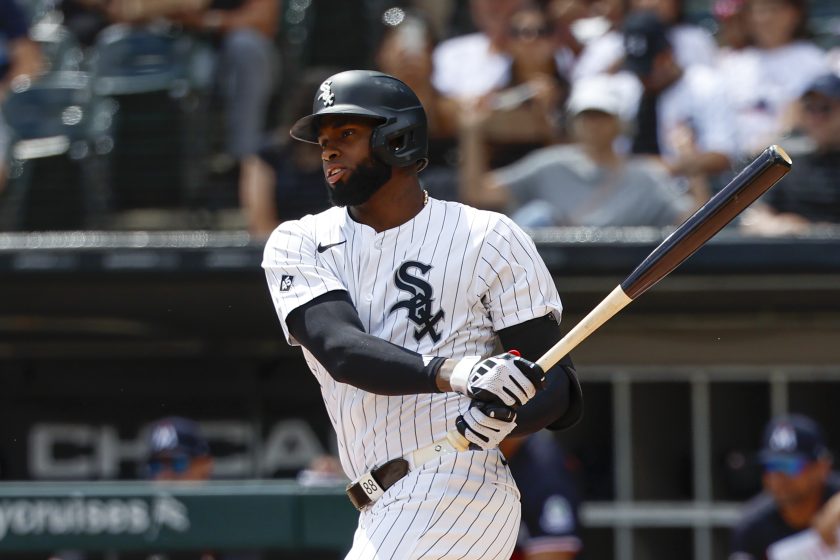‘The whisper challenge’ and the New York Mets’ future
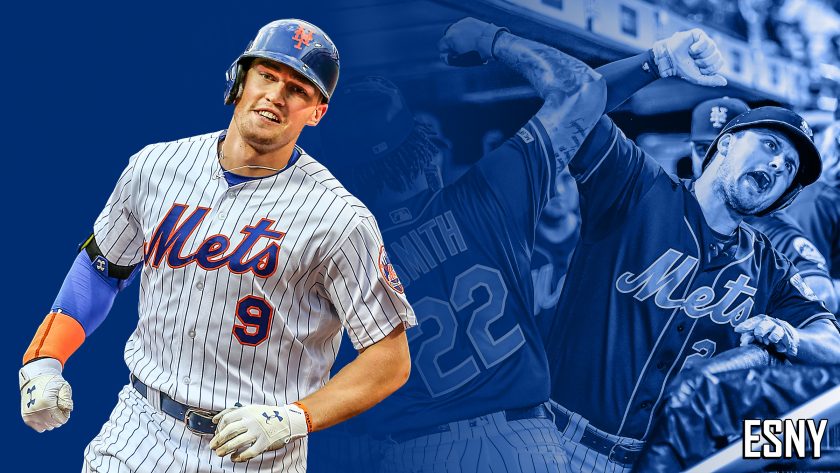
“The whisper challenge” played by J.D. Davis and Brandon Nimmo, and how it translates into the New York Mets’ future.
J.D. Davis and Brandon Nimmo are sitting across from each other in the Mets’ clubhouse.
“Porterhouse steak,” Davis says.
“Polo Grounds?” Nimmo asks.
“Porterhouse steak,” Davis says again.
“Bolster…” Nimmo responds. Davis can’t hold back a giggle.
They’re playing the Whisper Challenge, in which one contestant, wearing headphones, must guess what the other is saying. Nimmo can’t figure out porterhouse steak. “Sugar Díaz?” he asks. The buzzer sounds.
Davis is up next.
“Walk-off home run,” Nimmo says. “Walk-off—”
“Walk off,” says Davis.
“Home run,” prompts Nimmo.
“Home run,” says Davis. He gets a green checkmark.
They’re playing a silly game, giving the social media department some offseason content to mollify fans. But it’s interesting: Nimmo and Davis are both players who have at least been mentioned as potential trade chips. And as they play the whisper challenge, they’re exemplifying a dynamic that sooner or later, Mets fans will have to grapple with.
The 2019 Mets, despite their flaws and their non-postseason finish, had one of the best cores in recent team memory. Nimmo and Davis, of course, but also Pete Alonso, Jeff McNeil, Amed Rosario, Michael Conforto and Dominic Smith; Jacob deGrom, Noah Syndergaard, Steven Matz, Zack Wheeler and Seth Lugo.
So, here’s the issue: can the Mets strike the right balance between a fun, hometown core and a winning team? And if they’re forced to make a choice, which one should they pick?
It’s completely defensible, for instance, to say that the Mets should trade Davis. He’s a below-average defender and will be more valuable to an American League team as a DH. His career year last season (.307/.369/.527, 22 home runs) was driven in part by a .355 BABIP, which may prove unsustainable despite Davis’ high exit velocity.
His value might be at its peak and other teams probably have better use for him than the Mets do. Trading him is completely sensible.
But can Davis yield enough of a return to make the loss of a fan favorite, and a key component in the Mets’ wacky, endearing young core worth it? If you could increase the Mets’ team WAR half a run by trading Davis, would you do it?
In other words, is a marginal improvement worth losing a fan favorite? Is half a Win Above Replacement worth sacrificing the player Pete Alonso nicknamed the Sun Bear?
Here’s a starker illustration. Suppose the Red Sox called and made an offer. Would you trade Alonso straight-up for Mookie Betts?
Alonso is great, but Betts is undeniably the better player. He’s one of the best hitters in baseball, and he plays a premium position that the Mets need to address. So is the deal worth it?
To me, it’s obvious that it’s not.
Sure, the Mets might pick up a game or two if they swapped Betts for Alonso. But if sports become so impersonal, and players are reduced to literally nothing more than numbers, what’s the point of sports fandom at all?
Let’s be clear: analytics work and the people who develop them understand player value far better than you or I do. But players are far more than their numerical value. Generic Outfielder X wouldn’t have made Mets’ fans roar with shouts of “Hey Mets’ fans…we did it again!” Mookie Betts is a great player, but he’s not the Polar Bear king of New York.
[sc name=”LFGM T-Shirt” ]I won’t swap Betts for Alonso for the same reason I wouldn’t trade uniform colors with the Red Sox. Some things — the things that Mets fans love, the things that make them come to the ballpark — belong in Queens.
Yes, it’s completely illogical. It’s what logicians call the “is-ought fallacy:” the belief that because things are a certain way, they should be a certain way. “J.D. Davis is a Met, therefore he should be a Met.” It’s nonsense.
But here’s the thing: sports fandom is already irrational. We root for men we don’t know, who play a game that has little to do with the rest of the world. It’s not supposed to make sense. Why should we let logic intercede at the worst time, and get rid of players we love?
At their core, sports are about fun, joy, and love. When the Mets have players who have fun playing baseball, who find joy on the field and spread it to the stands, who fans love for their love of the game, who children root for like gods, who wear the orange and blue like they were born for it, who bring smiles to fans’ faces with an offseason game of whisper challenge… they shouldn’t let those players go. It really is that simple.
I have followed New York sports passionately for almost my entire life, since I went to Shea Stadium in 2004 and saw Jae Seo lose 8-1 to the Pirates. At journalism school, I once missed covering a Land Use Committee meeting to write about Jacob deGrom's last start of the year.

